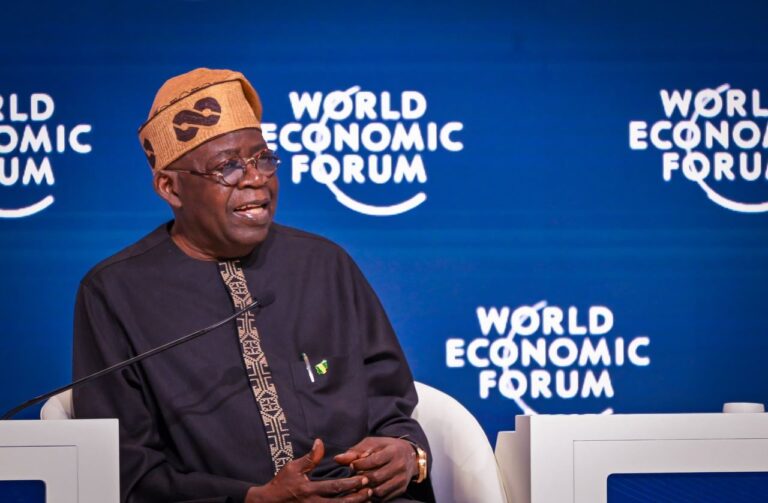President Bola Tinubu has reiterated the decision of his administration to remove the fuel subsidy, emphasizing that it was crucial to prevent Nigeria from facing bankruptcy.
Speaking as a panelist at the ongoing World Economic Forum in Riyadh, Saudi Arabia, Tinubu defended the petrol subsidy removal, arguing that it was essential to reset the economy.
READ ALSO: Tinubu Leaves Abuja For Netherlands, Saudi Arabia
Acknowledging the challenges associated with abandoning a policy that had allowed Nigerians to purchase petrol at subsidized rates for years, Tinubu maintained that he was convinced it was in the best interest of the people.
He emphasized that leadership entails making difficult decisions decisively when necessary.
It could be recalled that President Tinubu made announcement regarding the subsidy removal on the day of his inauguration, famously declaring “subsidy is gone” in his speech.
READ ALSO: How Subsidy Removal Killed Clean Cooking in Nigeria
However, the move led to a significant increase in commodity prices, exacerbating hardships in the country and drawing criticism from some of his opponents who viewed the subsidy removal as a poorly considered policy.
Tinubu highlighted efforts to mitigate the impact of the subsidy removal on vulnerable populations, stating that measures were in place to cushion the effects.
He emphasized the involvement of Nigeria’s vibrant youthful population in technological advancements and education, expressing confidence in their ability to adapt and contribute to the growth and economy of the nation.
READ ALSO: Measles Reportedly Kills 19 Children In Adamawa, Govt. Blames Parents For Vaccine Rejection
“Luckily, we have a very vibrant youthful population interested in discoveries by themselves and they are highly ready for technology, good education committed to growth. We are able to manage that and partition the economic drawback and the fallout of subsidy removal.”
Tinubu said that the petrol subsidy removal equally engendered accountability, transparency and physical discipline for the country. According to him, that is more important to focus on what direction the country should go.

